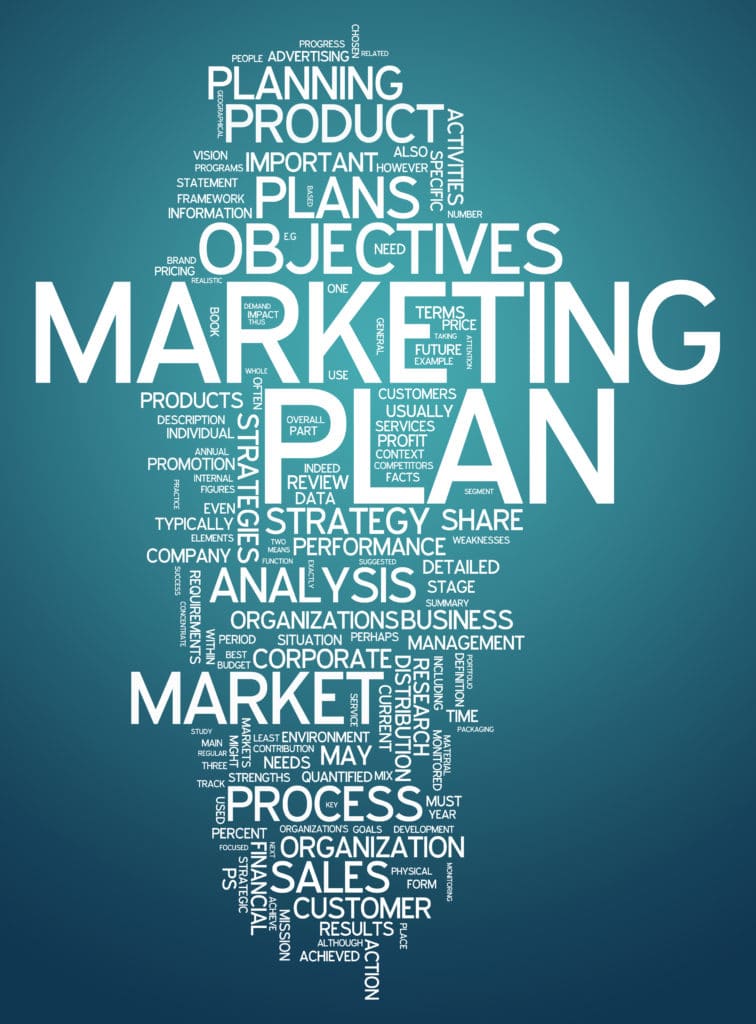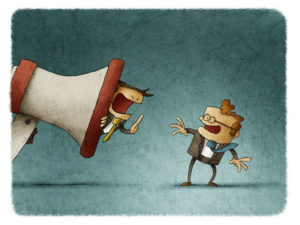How do you measure the effectiveness of your marketing efforts? While sales are an important indicator, most marketers and business leaders agree it is only one measure in a much larger equation.
True brand, business, and product success comes from monitoring a range of key performance indicators across five core areas known as the “Five Pillars of Marketing Effectiveness”:
- Market Measures
- Engagement Measures
- Customer Measures
- Revenue Measures
- Risk Measures
A sale doesn’t happen in a vacuum. Typically, more than two (or ten) things precluded a cold contact turning into a customer. By tracking a range of strategic levers, we gain insights and uncover opportunities from marketing investments more quickly. For many business types, monitoring elements from all five pillars accelerates growth and limits the ability for risk to take hold and unravel all your hard work.
Which measure should you track? There are some hard and fast rules, beginning with the fact that success metrics nearly always include a variety of integrated and interdependent factors – each providing a piece of the overall success puzzle.
The secret is knowing which measurements are appropriate for your company and campaign. And the first step is to define the behavior you’re seeking to change.
No matter if marketers admit it, we are all in the business of influencing behavior. We want to move a consumer to purchase, convince a potential partner to sign the deal, grab as many website visitors as possible, or pull in readers to our blog. If you’re not examining success metrics through a behavior lens, you’re missing the boat and probably missing opportunities.
Fortunately, we’ve done the hard work for you and have mapped all 26 measures under the five pillars in a single, comprehensive roadmap. With the 5 Pillars, you can segment and select the individual measures best for your business. Including options from each pillar will help ensure your analysis is respective of all the actual levers at play.

What marketing disciplines are covered?
For countless small and mid-tier companies, the reality of how their marketing is structured is a strategic combination of marketing, public relations, and social media actions.
While different teams may perform independent functions, measuring their outcomes as islands is a mistake.
Public relations is the air marketing breathes, defining the song sheet from which everyone will sing and tuning the atmosphere to create awareness, authority, and meaning. Social media brings the music to the masses using trending tools, while marketing directly engages and nurtures prospects.
The 5 Pillars of Marketing Effectiveness
To sit with a full list of the 26 ways to measure marketing effectiveness can be an overwhelming and confusing process.
Marketing measurement has too many disjointed concepts, formulas, and methods, which is why we continue to struggle to set measurement terms that everyone on the team is behind.
Enter the 5 Pillars of Marketing Effectiveness, a comprehensive roadmap of marketing measurement levers against which to measure real brand, business, and product performance.
Market Measures
Does the market know who you are? Are you seen as an authority with influence, or are you irrelevant in the context of competitors? Market Measures cover the marketing and public relations measurements related to the atmosphere in which you operate and where sales are enabled. This is not an area in which most brands can afford to fail, as it is a pillar that bears most of the load.
Engagement Measures
Once you start talking, is anyone listening? Does anyone care? Are they behaving with your marketing assets as you’d planned? Engagement Measures are like the trampoline on which your business and products bounce. Use these measures to dial in your springs, so you get the most lift in your Customer and Revenue Measures.
Customer Measures
Where do sales, brand engagement, and loyalty originate? From customers, of course! If customer-related measures are critical in your work, pay close attention to the range of metrics and formulas in Customer Measures such as cost per acquisition (CPA), customer lifetime value (CLV), persona metrics, and lead generation.
Revenue Measures
The financial rubber has met the road, and it’s time to measure it. How are sales performing, the sales pipeline, the cost of getting to these sales, and their related financial value to the business? Revenue Measures outline the income and profit points influenced by marketing.
Risk Measures
Many companies do not think to include risk mitigation measures in the marketing measurement mix. And that is quite a missed opportunity. Measures like Value at Risk (VAR) and Frequency of Loss can reveal treasure troves of measurable gain from mitigated risks or crises avoided. But you’ll never know if this marketing magic is happening behind the scenes if you don’t specifically measure it.
Now let’s get to measuring and dial knowing exactly where you have the most opportunity to turn up the volume.
Get The 26 Ways To Measure Effective Marketing Report Free
Earlier this month Docurated posed the question: “What is your #1 way of measuring marketing effectiveness?” Volume Public Relation’s own Elizabeth Edwards was selected as one of 26 experts to share their insights and results. Check out #3 in the article below for her unique perspective, and an added bonus of how psychology and the study of human behavior helped drive incredible results for our client.
Can’t get enough of how the art of PR and the Science of psychology create incredible results? Join the smart marketers and subscribe to our newsletter so you don’t miss a thing. (Subscribe in the lower left of any page on our site!)
Marketing Effectiveness: 26 Experts Reveal Their Top Ways to Measure The Effectiveness of Marketing Campaigns
Gone are the days of Mad Men when marketers used to pump money into senseless, measureless and ineffective advertising. During those times, it was hard to be an informed consumer when media was limited. Now the tables have truly turned; the customer has full control over the buying decisions that they make each day. Marketers must adapt and embrace new technologies and tactics in order to attract leads or even delight their customers. And in order to make ROI, building highly effective campaigns is a must. There’s a plethora of marketing advice everywhere, but finding the right effective tools, metrics and formulas is overwhelming.
That’s why we asked a panel of 26 marketing experts the following question:
“What’s your #1 way to measure marketing effectiveness?”
We collected and compiled their advice into this jam-packed guide to the best ways to measure the effectiveness of your marketing efforts.
See what our experts said below:
MEET OUR PANEL OF MARKETING EXPERTS:
D. ANTHONY MILES
D. Anthony Miles, is an entrepreneur, an award-winning researcher, award-winning professor, legal expert witness and best-selling author. Dr. Miles is a nationally known expert in the fields of Entrepreneurship and Marketing. He is CEO and Founder, of Miles Development Industries Corporation®, a consulting practice and venture capital firm. He has over 20 years in the retail, banking, and financial services industry. He was a Visiting Professor at Our Lady of the Lake University. He was recently invited to Harvard University by the Harvard Business School (HBS).
The best way to measure marketing effectiveness is …
“If I can say what is the number one way to measure marketing effectiveness it would be two things: Marketing Metrics and Predictive Analytics. First, marketing metrics is important because they tend to measure output things in terms of effectiveness. In the past marketing departments could not measure the effectiveness of ads, PR and events. So you could not justify the cost of the marketing efforts. With metrics, they can gauge related to the number of things you produce. For example, operational metrics that would measure sales per region or cost per customer and help you see what the cost per customer is. Also, you literally have to customize your metrics because they are only useful in your company. Based on a company I was doing some consulting work for, I know there are at least 100 plus different metrics that measure different things. You can’t just take a generic metric and used them in a company. There are different industries, different sales trends and different customer segments. So you need to be careful about applying metrics to your business.
The second is a new trend: Predictive Analytics. Predictive analytics involves using statistics to examine and determine patterns in data. As a researcher and statistician, now I have to use more predictive analytics and regression modeling in my consulting and research with companies. Predictive analytics is the “Moneyball” approach to measuring marketing effectiveness. Analytics help find patterns that companies can use to predict and understand customer behavior. For example, predictive analytics can help to understand and predict customer behavior such as shopping habits and purchasing trends. Data is the new gold! Lastly, now another trend is emerging with marketers and marketing departments.”
JOSEPH HIRSCHHORN HOWARD
Joseph is a Senior Marketing Manager at Masslight, a mobile and web app development agency in Washington, DC. He’s also the Founder & CEO of WordPress Buffs, an e-learning platform helping people build their personal and small-business websites on WordPress.
The best way to measure marketing effectiveness is …
“The most important key metric to track when measuring the effectiveness of your marketing campaign is the cost to acquire a single new customer. This simple statistic will help you evaluate the overall rate of growth of your business. If the cost to find, convince, and onboard new customers is too high, your business won’t be viable in the long-term. There are other metrics that are also highly important, but this one will provide a telling view from 30,000 feet.”
ELIZABETH EDWARDS
Elizabeth Edwards is the President, Founder & CEO of Volume Public Relations, a PR agency that specializes in utilizing scientific insights in their marketing communications strategy. Elizabeth’s work has been recognized with awards from the International Association of Business Communicators (IABC), the League of American Communication Professionals
(LACP), PR Week, and the Denver Business Journal.
The best way to measure marketing effectiveness is …
“In short, the answer is sales. As successful marketing practitioners, we share many metrics with our clients that prove success, but the true measure of marketing effectiveness is sales outcomes. A recent example is the 2014 BMW Championship, where we DOUBLED ticket sales in the first week, while breaking nearly every record for the event.
The BMWC had never in the history of the tournament sold more than $300,000 in tickets in the first week of sales. With the right message and promotion — created from our unique science-empowered communications strategies – we broke that record and achieved $600,000 in ticket sales, eventually
resulting in a SOLD OUT event.
The campaign was so phenomenally successful because it created red carpet feel of access and targeted the emotive drivers in the human mind.
The impact of our scientific approach, also helped raise the most money for the Evans Scholars Foundation, the sole beneficiary of the BMWC — essentially the sales equivalent for the nonprofit industry.”
PAUL ST-JACQUES
Paul St-Jacques is the founder of Maverick ROI, the place marketers, entrepreneurs, and service professionals come to learn how to use modern direct mail marketing strategies to generate quality leads and customers for their businesses.
The best way to measure marketing effectiveness is …
“My #1 way to measure marketing effectiveness is to figure out what is your customer lifetime value (CLV). By figuring out what is the projected profit your business makes from a customer over time, you can then figure out how much you can actually spend to acquire and retain a new customer. This is extremely powerful as more often than not you’ll realize that you can spend much more on your marketing campaigns than anticipated to acquire new leads and customers.”
RAMON KHAN
Ramon Khan is a Sales and Marketing expert with a passion for helping businesses grow. He is currently the Marketing Manager of National Air Warehouse.
The best way to measure marketing effectiveness is …
“There are several things that you want to take into account when measuring the effectiveness of a marketing campaign, but one towers over all the rest, ROI. Click through rates or response rates are great information to look at but if they do not result in revenue for the business, then you might be spinning your wheels and not getting any real traction. The only way that you would focus on other metrics for a longer period of time is if your response rate is very high but just not converting well. This is when conversion optimization kicks in. Otherwise, I think the single most important measure of effectiveness is if it has an overall impact in revenue. Of course happy customers is the single most important aspect to any business. That said being said, businesses do not operate in a non-profit way so ROI should always be taken into account.”
SEAN SI
Sean Si is the CEO and Founder of SEO Hacker and Qeryz. A start-up, data analysis and urgency junkie who spends his time inspiring young entrepreneurs through talks and seminars. Check out his personal blogwhere he writes about starting up two companies and life in general.
The best way to measure marketing effectiveness is …
“I think that this is mostly validated by goals you’ve set for your marketing campaign. Whether it’s a lead, a sale, an acquired user, a converted customer, etc. Now we’re using a slur of tools including Google Analytics, Woopra, Customer.io and so on to track these goals for our SaaS business. It’s an online survey tool named Qeryz. As far as formulas go, we’re only tracking CPA (customer per. acquisitions) and if those acquisitions convert to paying customers.”
ERIN WASSON
Erin thrives in conceptualizing, creating and cultivating brands. Driven by a passion for all things creative, she’s led the marketing efforts for 3 Chicago start-ups. Helping grow a Chicago Real Estate Company- Homescout Realty; launching the brand and marketing of web-based hiring technology-Hireology, and now taking on the most recent venture of VP of Marketing for UrbanBound. Erin is thrilled to be part of the launch team, taking part in building a product and a brand that is reinventing relocation utilizing technology. As the leader of the Chicago HubSpot User Group and recurring guest speaker at Loyola University Chicago, she finds joy in helping others pursue their goals through effective marketing.
The best way to measure marketing effectiveness is …
“At UrbanBound, we use HubSpot for all of our marketing automation, and frankly, I’m not sure how anyone effectively does their job in the Marketing field without a platform like this. HubSpot has been one of our greatest weapons, especially at a startup, as we’re going up against big companies with a strong and solidified groundwork. The data that HubSpot provides is simply unparalleled – any number you could possibly want to know, whether it’s website visits, page performance, blog hits, social media metrics, CTA clicks (and anything else you can think of), is all found within the portal. The easy to use interface allows you to aggregate all of your marketing efforts in one place, giving you numerical-proven insight into exactly what is and is not working. The depth that the information goes into in the platform is simply invaluable – it drives everything that our team does. Long gone are the days when Marketing was viewed as arts and crafts – and this is largely due to platforms such as HubSpot. Marketing has shifted to a completely data-driven industry, powered by conversion rates, click-to-open percentages, SEO, keyword analytics, and submission rates. HubSpot not only allows you to see all of these metrics, but it guides you through the whole process with a robust knowledge center. HubSpot has transformed our company into a marketing powerhouse.”
ROBYN TIPPINS
Robyn leads community marketing and business operations for Mariposa. She has been managing online communities for 17 years. Her book, Community 101 is a primer on online *community management*. Over the years, she has worked with large and small companies, including Yahoo, Intel, MTV, AT&T, Behr Paints, Fleishman-Hillard, ReadWriteWeb, SAY Media, Mozilla, Cisco, Facebook and Current TV. She authored the Community Certification program at GetSatisfaction.
The best way to measure marketing effectiveness is …
“For our clients, we try to keep it very simple. It’s cost of customer acquisition minus lifetime value. CCA would include advertising costs + marketing costs + sales rep salary (the number of them normally required to make a sale) for the length of time our sales process normally takes. In other words, if our client’s sales process (lead to close) usually take 3 months, we take the cost of those activities for 3 months, divide it by the number of sales made in that period by that sales team and we have our CCA. So, if we have a CCA of $235, and a LTV of $35,000, we feel like we’ve done our job.”
MICHAEL RILEY
Michael Riley is co-founder of Boxter and previously founded the startup Simplpost. He is active in the local community as an organizer for TechGirlz, Philly Startup Leaders, and also founder of PhillyStartupTech.org. Follow him on Twitter: @itsatechworld
The best way to measure marketing effectiveness is …
“ROI is the most important measurement for our marketing. Calculate the return on investment using three factors. The lifetime value (LTV) of a new customer. What call to action (CTA) converted them to a paying customer. And what it cost to get that customer into our funnel (CAC). Having those three pieces of data allows us to make smarter marketing decisions and gives us the entire big picture.”
SHARON HARRY
Sharon Harry serves as Director of Marketing for Metropolis Technologies, a call reporting and telemanagement manufacturer that enables businesses to gain insight into their voice network communications through analytics. Since joining Metropolis in 2011, Sharon has led all channel marketing programs, communication, and product strategy. She is passionate about customer engagement and on-going improvement.
The best way to measure marketing effectiveness is …
“At Metropolis, we operate a lean marketing department and our efforts come down to one deciding factor regarding effectiveness: the creation of a sales opportunity. Isn’t the point of brand awareness to generate market share, which directly translates to bringing in revenue? We use Salesforce CRM to record and manage our lead sources, and track their sales path whether they come from a trade show, email campaign, advertisement or inbound web lead. At the end of the day, it all comes back to ensuring the leads are resulting in qualified sales, which we easily do by running campaign reports out of Salesforce.”
PRATIBHA VUPPULURI
Pratibha Vuppuluri is the Founder & Principal at KeyInsite Inc, a data analytics company, and a Co-Founder of NariNetwork, a woman-focused digital media company.Pratibha has more than ten years experience in the financial services industry including seven years in the Healthcare, Private Equity Secondary Market and Technology Investment Banking space at both UBS and Deutsche Bank. She has also authored and published an economic thesis on “The Impact of Negative Economic News Coverage on Consumer Confidence”. Pratibha graduated from Cornell University with a B.S. in Applied Economics and Management with Distinction in Honors Research and completed her Masters in International Affairs (International Finance and Economic Policy) at Columbia University.
The best way to measure marketing effectiveness is …
“The best way that KeyInsite, www.keyinsite.com, tracks marketing effectiveness is by gathering information of the number of unique visitors who approach your website. As a startup, it is important for your marketing strategies to be effective. Are we producing enough content to keep our visitors engaging? Unique visitors will help achieve our marketing strategy of getting our name into the market. We would like to see a significant increase in our unique visitors.”
MIKE SHAW
Mike Shaw is the SEO specialist at Tower, a search engine marketing agency in Lancaster, PA. He helps to develop the client’s website authority, trust and positioning in the SERPs. Mike has worked with companies such as Mercedes-Benz, Travelzoo, Car Hire Market and Insider-Journeys.
The best way to measure marketing effectiveness is …
“When it comes to measuring the effectiveness of our marketing campaigns (for clients and ourselves) I pay heavy attention to engagement. Engagement is a significant indicator of how effective your marketing campaign is because it takes into account how your content has been perceived and used by users; it is also trackable.
Useful engagement metrics to track:
Brand Awareness – type your brand name into Google and Twitter and see what people are saying. Are there positive comments and reviews, or are there negative statements you need to address? Either way, it gives you a glimpse into how your brand is perceived.
Social shares (re-tweets, shares, likes, +1’s) – We have all heard the cliché saying, “sharing is caring”. Well it is true! People only share what they want to share and they share it because the content has something that is relevant to them in some way. Discovering who is sharing your content offers marketers great insight into demographics, target audience and reach.
Commenting – When people comment on your website, it give marketers the chance to engage with them. When you engage with your users by commenting back, it shows that there is a ‘real’ person involved, who cares to respond. If you compare two blog posts, one that has comments vs. one that does not, it is obvious which content had more impact.
Inbound links – The number of external links to your website from other relevant, authoritative sites indicates that other people have found your content and consider it a valuable resource or reference.”
NIMA NOORI
Nima Noori is the Founder and CEO of TorontoVaporizer, Canada’s largest eCommerce retailer of vaporizers and vaporizer accessories.
The best way to measure marketing effectiveness is …
“Tools like ‘Optimizely’ allow one to AB test different elements on a website and let the users vote on the effectiveness of a micro-marketing initiative with their behavioral patterns. If the color of a sign-up button changes and the click through rate goes up by 1%, that may indicate that the new color is just more effective. This is the new era of marketing that is driven by real-time data and user’s voting with their behavior. So, it will boil down the measure of a company’s marketing effectiveness to how fast they can prove or disprove a hypothesis, and that is so clever that it doesn’t require any guessing game in the marketing process anymore.”
DIMITAR SERAFIMOV
Dimitar is the Marketing Manager at InPlayer, an ecosystem of products for video monetization.
The best way to measure marketing effectiveness is …
“The best-case scenario for a marketing manager would be to manage a marketing dashboard and continuously track the pre-specified Key Performance Indicators (KPIs). The KPIs report should give a clear picture of the dynamics of the crucial numbers to the business. I would like to point out a metric that we give a top priority to. It’s: *Number of conversions / Cost per conversion*. The following ratio gets the closest to Return of Investment (ROI), as the ultimate marketing principle. The conversions can be all the parameters that grow the visitor to a potential client: user sign-ups, video plays, contact form submission, purchases, etc. The cost for achieving that indicates if that conversion is acquired efficiently.
The metric can morph into sub-metrics like: Social conversions efficiency (Engagements+new followers / acquisition cost), PR conversion efficiency (Media mentions / acquisition cost) etc.”
GARY BROOKS
Gary Brooks is the CMO of Urjanet– the world’s first provider of automated energy data that enables organizations around the world to make smarter, more profitable and eco-friendly decisions for energy management and sustainability. Gary is a B2B marketing addict, occasional blogger, innovator and change agent with an entrepreneurial spirit and a proven track record of delivering breakthrough revenue performance.
The best way to measure marketing effectiveness is …
“The simple answer is sales pipeline and revenue. The more complex answer involves the tracking and measurement of other marketing metrics that are leading indicators of sales pipeline and revenue which include website visits, content and social media engagement, leads, lead conversion rates, sales meetings, qualified sales opportunities, etc.
Smart companies invest in marketing for one reason: to get more buyers to buy more product, more frequently for more money, but many organizations fail to quantitatively track and measure the effectiveness of marketing in terms of pipeline and revenue. This is simply irresponsible. Marketing is an investment, and as stewards of this investment, CMO’s and their teams have a fiduciary responsibility to deliver a positive return on this investment. Marketing ROI must be quantitatively measured in terms that are understood by leadership teams, investors and board members.
To ensure CMOs and marketing team members remain focused on delivering pipeline and revenue, their compensation plans must be tied to these goals and other metrics that are leading indicators of pipeline and revenue success. Quantitatively measuring marketing performance and aligning sales and marketing goals and compensation plans is a must do, first step to scaling revenue and maximizing marketing effectiveness.”
ELLIE MIRMAN
Ellie Mirman is VP Marketing at Toast, an all-in-one restaurant management company. Prior to Toast, she held various marketing roles at HubSpot, an inbound marketing and sales software company. Ellie’s specialties lie in lead generation, email marketing, sales & marketing alignment, and marketing analytics.
The best way to measure marketing effectiveness is …
“The #1 way I measure marketing effectiveness is simply how many customers (and how much revenue) is driven by marketing. Of course, that can mean a lot of different things, but starting with that simple definition of success is key. For example, marketing can attract new leads through social media or email marketing. Marketing can attract new leads by running paid lead generation campaigns. Marketing can increase the number of customers by enabling sales with tools to be more effective. The customers and revenue that close as a result of these efforts are the most important metric of success. The simpler the metric, the clearer the impact.
In terms of tools, we use a combination of HubSpot, Salesforce, and Google docs / spreadsheets.”
KUNLE OLOMOFE
Kunle Olomofe is the Founder/CEO, Adtwist Publishing Co and an award winning business executive, social media influencer and online publisher. He has almost 2 decades experience working in the digital marketing and online publicity space and is a renowned Speaker and Trainer who consults with individuals, SMEs and large firms worldwide.
The best way to measure marketing effectiveness is …
“I do digital and publicity marketing consulting work for small, medium and large firms across various industries and the no. 1 way I measure marketing effectiveness is through certain core KPIs (Key Performance Indicators) which defer depending on the marketing projects I’m working on or clients I’m working with per time. For example, if I’m working with a client who is concerned about web site traffic, visitor engagement and also how many visitors are converted to customers per visit and which products they buy from a list of available products on their web site, then I trust Google Analytics to give me answers with point and click ease. If my client happens to be more concerned with web mentions and market reach online, I use Google search results, the Google Alert tool and good old regular web surfing to determine the effectiveness of such a campaign.
A recent client, for example, was most concerned about their brand’s image and local market reach online, so what we did was to determine which KPIs would best reflect the progress of their campaign.The KPIs we chose included how many times Google found their brand name mentioned online in a positive light and what kind of feedback (especially comments) they received via their social media channels. We were also keen on how many more enquiries they got from their new web site and if Google found their site worthy of the no. 1 spot after a reasonable period of time from when a re-design was launched, which leads me to what I consider to be the most important aspect of measuring marketing effectiveness…
Time Frame To Seeing Results: Like many consultants, I meet clients who are so eager to turn their situations around that they would be willing to pay handsomely for instant solutions.This is where I always step in with some firm advice that goes like this… If you want real, lasting, reliable solutions, you simply have to be willing to input necessary variables on a consistent basis, and most importantly, you have to be ready and willing to wait and see results over a reasonable period of time. In most cases, I suggest a waiting and measuring period of at least 90 days from the start of a project and we then carry out KPI analysis meetings every 30 – 90 days after that.”
BRYAN CLAYTON
Bryan Clayton is the CEO of GreenPal, which is best described as Uber for lawn mowing.
The best way to measure marketing effectiveness is …
“We measure our customer acquisition by calculating our net promoter score (NPS) We do this by regulatory running customer surveys using a tool called Get 5 Stars. Using this tool we solicit feedback from our customers, if good ask them for reviews for our site and also third party sites like Yelp, if bad we get out in front of the issue immediately. Then we ask, on a scale of 1-10 how likely would you be to refer a friend to use GreenPal. We then use that data to calculate our NPS. Doing this allowed us to capture some funny reviews. We have a mantra. Listen to your customers, otherwise you will have none.”
ANDREW DAVIES
CMO and Co-Founder of Idio, Andrew fuses a deep knowledge of digital marketing with 10 years running technology businesses. He works with leading content marketers who use idio’s Content Intelligence platform to deliver rich audience insight, content personalization, and sales
intelligence.
The best way to measure marketing effectiveness is …
“The number one way to measure marketing effectiveness is number and value of leads generated. The ROI formula we use at idio for evaluating all of our campaigns is: ROI =(Gain-Cost)/Cost. Let me show you how that works with a real life campaign. We created an ebook recently: The cost of that campaign was £4950. We calculated that by adding labour and design costs (£3200), technology costs (£650), and amount spent on paid promotion (£1100).
The gain was £10,200. We calculated that by ascertaining the number of marketing qualified leads generated (136) and the value of a MQL (£75). Putting that into the formula ROI = (10200-4950)/4950 = £106%. Or, put another way, for every £1 invested, we got £2.06 of value back. Marketing will forever battle with the presumption that it is a cost center, not a revenue driver. Us marketers do ourselves no favors when we validate our efforts with engagement/brand awareness metrics rather than the business metrics which show how marketing really moves the commercial needle.”
MICHELLE STINSON ROSS
Michelle Stinson Ross is the head of Outreach at AuthorityLabs and an industry recognized authority on the outreach power of social media. She has worked with several clients not only to increase brand awareness and the visibility of special promotions, but also how to use the social space to connect with media influencers and the public.
The best way to measure marketing effectiveness is …
“All of my marketing efforts are measured against business goals, and I use a mix of tools and metrics to do that. For instance, if brand awareness is a goal, I will track the reach and engagement of my social media posts in the platform analytics and in my 3rd party tools like Sprout Social. I will also track web traffic driven by those posts and shares in Google Analytics. If something more specific, like email sign-ups is the goal, then I will also track conversions against traffic driven by search, social, and PPC. We will also keep track of how those landing pages are ranking in search results with our own proprietary tools.”
RICK WHITTINGTON
Rick Whittington is the owner of Whittington Consulting, an online marketing firm based in Richmond, Virginia specializing in websites and lead generation for business-to-business companies.
The best way to measure marketing effectiveness is …
“The number one way to measure marketing effectiveness is cost per lead. The combined cost of production costs, ad spend and team salaries divided by the number of leads you generate for sales will tell you how efficient your marketing spend is, how targeted your efforts are, and gauge how effective your total marketing efforts are. This metric is useful because a company can determine how much they can pay for a lead based on close rate, then determine if their marketing efforts are leading to profitable transactions. A close second best metric is conversion rate, which is a percentage that can be found by dividing the number of visitors coming to your website by the number of leads resulting from your website. While there is no benchmark for conversion rate — and it can vary by industry — this metric tells a story of how successful you are at bringing qualified visitors to your website and how successful your website is at convincing visitors that you have something to offer. A higher conversion rate means that you need fewer visitors to get the same number of qualified business opportunities from your website.”
CAROLYN WILMAN
Carolyn Wilman (aka @IdeaMajesty) is a Digital Marketing Strategist and Sweepstakes Specialist. Carolyn teaches SMB how to effectively use online marketing as well as social media management to maximize their digital presence converting to sales.
The best way to measure marketing effectiveness is …
“This is going to sound really obvious, but its sales. ALL marketing activities should always lead back to sales. There are all types of tools to measure online analytics, impressions, engagement, etc. but all the connection in the world won’t make a lick of difference if your company isn’t making money. That said, you do need to trace back from sales to your marketing efforts to figure what is working and what isn’t so you are not wasting money and effort either. What specific tools you use will all depend on the marketing activity.”
SHEKHAR DEO
Shekhar Deo has extensive development experience in distributed, clustered systems and data storage technologies. He was instrumental in building EngageClick‘s advertising technology platform utilizing machine learning algorithms and rich data analytics to analyze consumer behavior in real time.
The best way to measure marketing effectiveness is …
“1) Measuring marketing effectiveness is an art and science together. There is really no one #1 way to measure it, however, there are multiples of equally important measurement. I know most people want to track marketing effectiveness by sales. However, this only works if marketing is your product. Otherwise, that any product that’s being marketed needs to speak to the needs of customers itself. We’ve three measurements that are very effective:
– Measuring the marketing reach to the right audience – It’s important to measure if your marketing is reaching to out the right audience. Most marketers don’t measure it. They just use the info during planning time and then hand over to media execution team to reach them. It’s important to measure by several pixel tracking, campaign analysis, visitors analysis, etc to understand what type of audience the marketing is reaching out to. We call it persona metrics.
– Measuring the direct possible outcome of reach – We attach 2-3 goals to each marketing campaign such as social visitations, direct web visitations, lead generations, and conversions. We call them communication metrics.
– Measuring optimizations – Keep optimization metrics handy. It’s important to optimize to get better result, but it’s equally important to measure optimizations. We call it optimization metrics.
2) We use our own proprietary software that algorithmically builds out persona once the campaign is started on a frequent basis and provides great way to look to the audience, communication impact, and results visually. It provides all optimization metrics as well. We’ve built it to provide a unified view of all communications across all channels and devices so that us as marketers look at bigger picture and plan out tactical needs.”
>DAVID RING
My name is David Ring and I am the Product Marketing Manager of MioDatos.
The best way to measure marketing effectiveness is …
“Our number one way of measuring marketing effectiveness is the lead conversion rate. This shows the effectiveness of our marketing campaigns, the existing knowledge of prospects when talking with our sales team, and the overall effectiveness of both teams in general. This metric can be compared month over month to determine the success of both teams.
Secondary analytics related to this metric also include the average time our sales team speaks with a prospect before closing a deal as well as the number of products and total sale amount of the order. The more effective our marketing team is in educating prospects on our products, the less time our sales team spends explaining the product to them. The number of products and sale amount reflects our sales team’s ability to upsell on complimentary goods as well as their general effectiveness.”
JACOB MOLZ
Jacob Molz is chief communications officer for ISS 24/7, the nation’s leading provider in facility and venue management software. He is a UCF Alumni with a BSBA in Management and has an MBA in Entrepreneurship from Nova Southeastern University. He is both Inbound Marketing and HubSpot certified.
The best way to measure marketing effectiveness is …
“My #1 way to measure marketing effectiveness is ‘authority’.. It might seem unconventional, but if we are telling our story “effectively” our brand awareness will increase, and the rest follows. For example, I know that as long as we are the thought leaders in our industry the ‘conversions’ will follow – and they do. We use HubSpot to measure our proprietary “authority formula” to determine how our story via content is being received and reciprocated. When you are sourced in top industry magazines without paying ad space, as a vendor, you know you are telling your story the right way.”
VICTOR BILANDZIC
Victor Bilandzic is a Managing Consultant at Motava, a digital marketing agency in San Jose, CA. Victor and his team at Motava have worked with hundreds of clients in numerous industries ranging from talking parrot shows to high-tech electronics.
The best way to measure marketing effectiveness is …
“We first define the major business objectives for a business. For the types of businesses we deal with, that is almost always one of the following 2 goals:
1. Increase in sales
2. Increase in leads
From there, we define the average value of each sale or each lead with the client. We’ll then use a custom dashboard tool (dashthis.com), to define the sources of each successful conversion to track where the visitors came from and if they came directly from our efforts.
What’s nice about the tool is we can also integrate with apps or sources that don’t have direct reporting integration, like Yelp’s deals. We add the data to a spreadsheet then upload it to the dashboard using their CSV feature.”
Click here (https://bit.ly/1Lciray) for the complete article from Docurated.
























